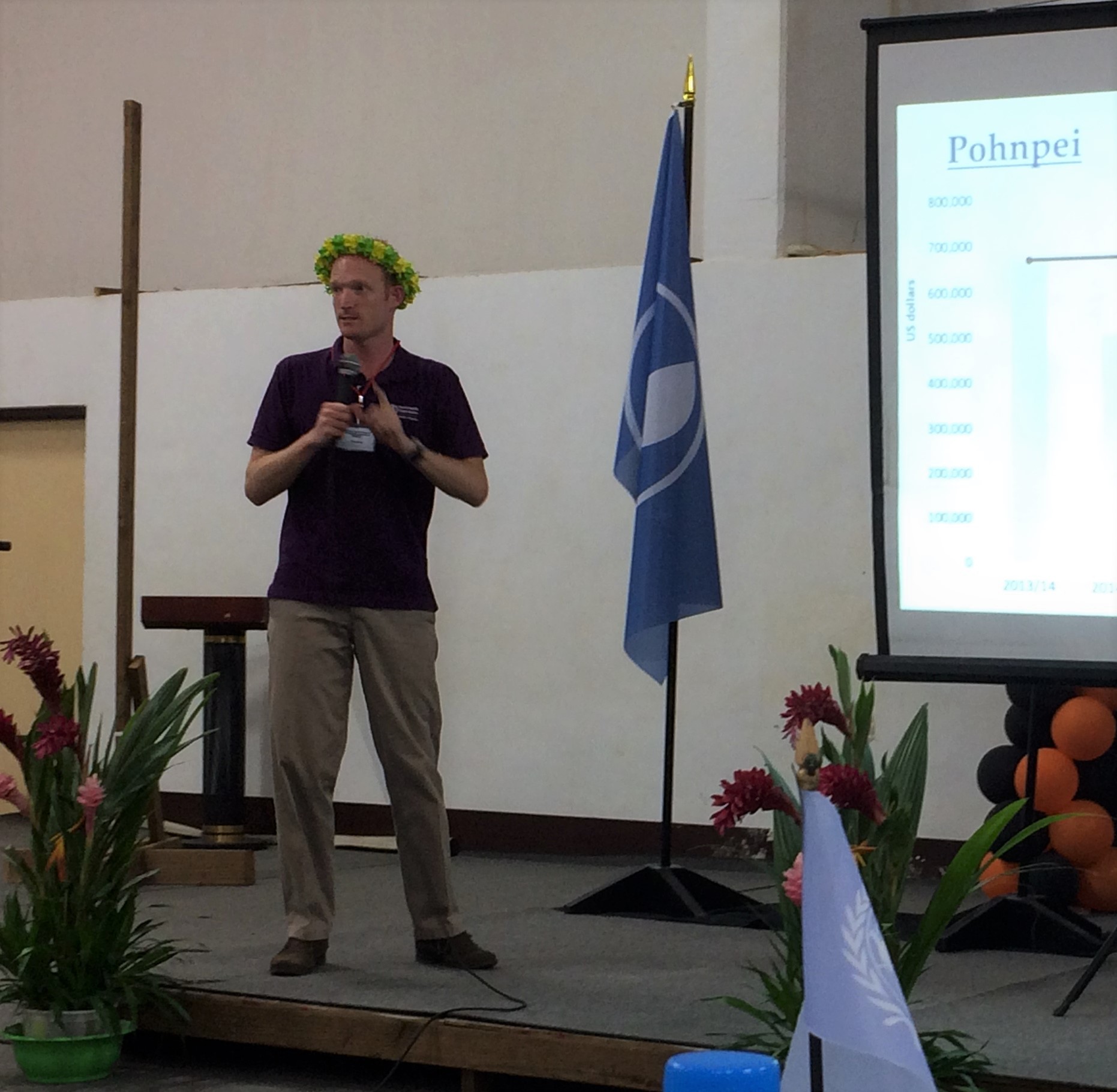Public Health: Chris Bates
Chris Bates always wanted to work overseas, and a Master of Public Health has helped him achieve this.

Chris Bates (MPH 2013) is making a difference in international public health. He coordinates technical assistance for cancer control activity across the Pacific islands, including World Health Organization (WHO) cancer programs support.
Now Technical Officer – Cancer for WHO Pacific islands, Chris graduated with a Master of Public Health in 2013. He is an Honorary Fellow in the NCD Unit of the Nossal Institute for Global Health at the Melbourne School of Population and Global Health and leads WHO initiatives such as the Global Strategy to Accelerate the Elimination of Cervical Cancer as a Public Health Problem.
Chris has worked in COVID-19 technical guidance and incident management support and is the DPS Focal person for Healthy Ageing in the Pacific islands. He also works on oral health, workplace culture and diversity, equity, and inclusion across the region.
What are your strongest memories of university?
The fun (and work) of being President of the students’ association and getting my first job in the field of global health. The diversity of people, opportunities, activities and education really motivated me to get involved in as much as possible.
What goals did you set and have you stuck to them?
The goal was to get a job overseas and yes - achieved that fairly promptly.
What drew you to your field and what do you love about it?
Epidemiology. I was inspired to start the MPH to learn more about cancer epidemiology, and what to [do] about it. I'm still in that area and there's a lot I learnt along the way, so I'm still involved in epidemiology but also so much more. It is the breadth of work that is fun.
Tell us more about your role and how university helped you prepare for it.
Easily the most applicable is my capstone project, a research protocol on cancer screening in Fiji which is almost exactly what I am doing now. An unexpected but very useful outcome, which I have referred back to many times.
What drives you to do your best at work?
When I achieve goals and then in some other context, seemingly unrelated, I get recognition for the work and realise that what I do really is being put into practice.
What are your career highlights so far, and what’s next?
I learnt some health economics and bridged a gap between noncommunicable disease and health financing. I used this to do some projects in the Pacific islands examining medication purchasing.
I visited seven Pacific countries and was invited to do the same work in all states of Micronesia. I am looking forward to completing a Master of Health Economics and transferring this skill elsewhere.
What advice do you have for current students?
Take all the opportunities and meet all the people.
What is the best advice you’ve had?
"Optimal imprecision, appropriate ignorance". Sounds bad but it is about adjusting expectations and working strategies to fit the scenario. Achieving what is realistic. You cannot always achieve the ideal and doing so can be detrimental.
It is better to do something knowing it is somewhat useful than doing nothing at all, and it is just as important to acknowledge that which is missing rather than searching for what is not there.
And the biggest risk you’ve taken?
Leaving Melbourne after the MPH without any particular prospects in a new country and very little income. I think it worked out well.
How have you overcome career challenges?
Consulting was very difficult. It is so unpredictable. In general, the work was interesting and impactful, and that made it worthwhile.
What is the most unexpected thing you’ve learned?
Getting more involved in the Pacific islands’ life. The little things to help overcome obstacles at hand. I learnt to make coconut milk, make chocolate from fruit to bar, mix kava, make rotis and very good curry, and speak a little bit of a lot of languages.